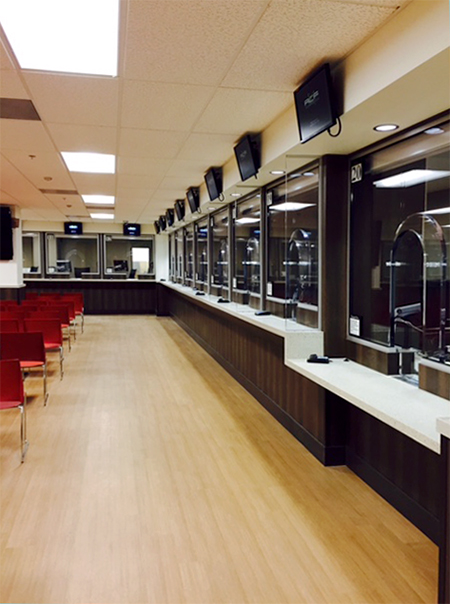Bulletproof glass is a serious consideration for any business or facility, and it is also a long-term investment. After the initial installation, your bulletproof glass should last for many years. In general, there are only four reasons you would need to replace ballistic glass. Let’s take a look.
Bulletproof Glass Replacement After Building Renovation
If your building is being renovated, for example, the bullet-resistant framing and structural integrity of your current system may be affected. It’s important to consult a ballistic barrier professional about the need for replacement. 
Yellowed or Discolored Bulletproof Glass
Bulletproof glass may yellow after 10 to 20 years as a result of UV exposure. While discoloration will not affect the performance of ballistic glass, some facility owners don’t like the way it looks and opt to replace it with new materials.
Bulletproof Glass That Suffered Structural Damage
Bulletproof glass barriers are an excellent crime deterrent, but if a robbery does occur and the glass is impacted, it should definitely be replaced. The structural integrity of a sheet of bulletproof glass that has been penetrated by a round or damaged by another weapon is compromised.
Improperly Maintained Bulletproof Glass
Never. Use. Windex. Cut, drilled or flame-polished bulletproof polycarbonate or acrylic forms microscopic fractures in the plastic. These are not visible to the naked eye, and are structurally inconsequential. Chemicals in some cleaners, like Windex, attack the edges of these fractures and create what looks like cracks in the glass. While it has no impact on the material’s bullet-resistance, crazing affects visibility and cannot be buffed out. In the event of minor surface scratches, there is potential to buff the acrylic or polycarbonate surface to remove them. If your glass has crazing, you need to replace it.
The Right Way to Maintain Bulletproof Glass
Properly maintained bulletproof glass will keep its visibility and overall quality for many years. For regular cleaning, simply use warm water and a mild dish soap with a soft cloth or natural sponge. Avoid surface scratches by never using paper towels or abrasive cloths. Fill minor scratches by occasionally polishing acrylic or polycarbonate with a quality commercial wax.
When installing bulletproof glass, we have a few tips for contractors to avoid costly mistakes, including proper care and maintenance. Learn the rules for cleaning bullet-resistant windows.

